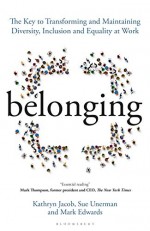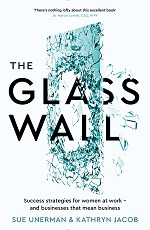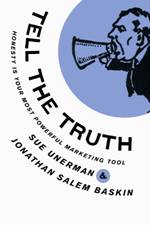 Alexa and I are not really getting on as well as I had hoped, or thought we would. First of all the rest of the family don’t like her listening in. Then quite often we don’t understand each other. When I asked about the forecast for rain the other day she played me the song Stormy Weather. She keeps offering me skills that I don’t want or need (or at least I don’t know that I need). And it vaguely upsets me that I don’t have to say please or thank you to her. Whilst I realise that this is ridiculous I do worry about children across the nation losing the habit of politeness because they don’t have to be polite to a smart speaker.
Alexa and I are not really getting on as well as I had hoped, or thought we would. First of all the rest of the family don’t like her listening in. Then quite often we don’t understand each other. When I asked about the forecast for rain the other day she played me the song Stormy Weather. She keeps offering me skills that I don’t want or need (or at least I don’t know that I need). And it vaguely upsets me that I don’t have to say please or thank you to her. Whilst I realise that this is ridiculous I do worry about children across the nation losing the habit of politeness because they don’t have to be polite to a smart speaker.
However I will persist, and I know that Alexa and I will start to see eye to eye. Partly, this is because I am busy, and some more assistance in life generally would be helpful (Alexa, fill in my passport application form/tax return/expenses at work/order flowers for my Auntie Joyce would be amazing functionality for example) and also because the stats show that so many other people already love their smart speakers. And of course, other voice assistants are available, and are being used. Mainly for weather and news updates, and music admittedly.
Over a quarter of UK households have smart speakers, and this is growing. There’s plenty of barriers in place in terms of usage. There’s no one protocol for use. The different models don’t share the same language for example. Once you do create brand content the discovery journey for customers isn’t yet established. Across life in general but brands in particular use cases are in development.
What’s the hurry then? With so much business as usual to fix, why worry about the next frontier? Who can afford the time to develop work for a new channel, particularly when it is so clearly one where content from any other route to market just is not transferable. The answer to this question is in front of us with every news story that demonstrates how new entrants to a market have eaten the lunch of brands that are established. Every time the tech goliaths decide to diversify their revenue streams by more market disruption.
Guy Kawasaki says everyone in business is either a pie eater or a pie baker. The pie eaters fight for a bigger slice of an existing pie. If they win, you lose, and if you win they lose. Pie bakers try and bake bigger pies. They work on the approach the if the pie gets bigger, then they win and so do you. When the pie gets bigger, then customers increase in number and diversity. The status quo progresses and changes. People, even competitors, can work together because everyone benefits. Whether you agree with this theory or not, you’re much better off working for and with baker than eaters.
Voice would really benefit from a pie baking approach. From sector alignment and standardized protocols and measurement.
Alexa, can you bake us a bigger pie?



Brighton Rock: This year’s Media360 gave delegates plenty of ideas and arguments.
Tuesday, May 28th, 2019Lord Finklestein was of the opinion that the deal for Brexit was no closer than the matchmaker’s marriage deal. He described Britain as two nations, Leavia and Remainia. One of the key problems was that politicians don’t understand how little people in general understand or even care about politics.
This problem of a lack of empathy with the public seemed to be echoed in a subsequent debate about building trust in advertising. The panel was divided. On one hand a campaign, educating the public about how their data was being used and why, was put forward as a solution. On the other hand there was a strong feeling that education was meaningless if, as with politics, the public neither understand or care. They just want the ad bombardment to stop. Karen Fraser, MBE, head of strategy at Credos, showed footage from research on current reactions to advertising, after pointing out that trust was at an all time low. Great ads were still talked about, and regarded as icebreakers for society. But there was much more ambivalence about online advertising where one respondent said: “it’s hard to differentiate between ads and content online”.
In light of this ISBA’s initiative about ad bombardment is to be welcomed. Direct Line Group’s marketing director Mark Evans explained that cutting down on excess frequency won’t just reduce waste which is a compelling argument for marketers with their CFOs. It will also help with consumer trust. A longer term view is necessary instead of jumping to satisfy short term metrics targets.
As an industry we are faced with shifting sands. More change is to come. Damian Collins MP, Chair of the DCMS Select Committee, was clear that the days of self regulation may be numbered as today’s media landscape poses very different problems from any in the past. After dinner speaker Amol Rajan, media editor at the BBC, said that we are at a hinge moment in history, and described Zuckerberg as the Gutenberg of our days, though the changes now are fantastically accelerated compared to the impact of the printing press. “We are, perhaps”, he said, paraphrasing the great Grace Jones, “slaves to the algorithm”. Certainly, as Campaign’s global head of media Gideon Spanier writes, doing business these days demands new ideas, new ways of working and new behaviours.
It’s crucial to have empathy with the public, our ultimate customers. Difficult as it is to really put yourself in another’s shoes, if you don’t at least try to do so then there’s very little hope of building brands for the long term in the digital economy.
Posted in MediaComment | No Comments »